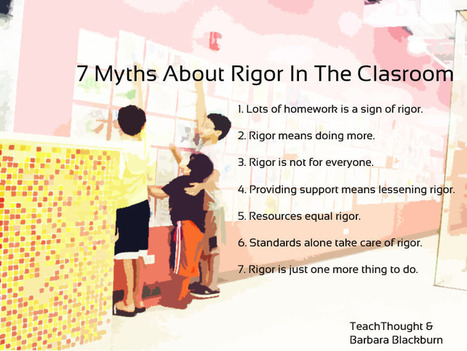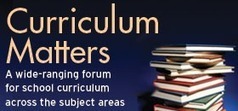Via Beth Dichter
Get Started for FREE
Sign up with Facebook Sign up with X
I don't have a Facebook or a X account
 Your new post is loading... Your new post is loading...
 Your new post is loading... Your new post is loading...
|
Beth Dichter's curator insight,
February 3, 2013 9:56 PM
The Common Core testing is rapidly approaching and this article discusses a research paper that was just released by UCLA's National Center for Research on Evaluation, Standards & Student Testing. They state that "the assessments hold a lot of promise for improving teacher practice and student learning" and that "the test-making projects face key financial, technical, and political challenges that could affect their success." They also reference a variety of resources, including one new to me called the Depth of Knowledge Levels (DOK), which provides four levels (the link to the DOK is at http://dese.mo.gov/divimprove/sia/msip/DOK_Chart.pdf): * Level One is recall * Level Two is skill/concept * Level Three is strategic thinking * Level Four is extended thinking The link to this DOK reminds me of Bloom's Taxonomy with verbs to help you understand each section as well as activities based on the level. The question that remains to be answered is if the tests being created by the Partnership for Assessment of Readiness for College and Careers (PARCC) and the Smarter Balanced Assessment Consortium will reach these levels, and according to this report it appears that will have "the more lengthy, complex performance tasks being crafted by the two groups...seemed likely to assess skills at DOK Level 4." The post also discusses some of the issues that remain, including cost and time of testing, cost of scoring, dealing with accomocations, and "Managing the "shock to the public and to teachers' instructional practice" that the tests' increased intellectual rigor will demand." 
Monica S Mcfeeters's curator insight,
February 4, 2013 12:59 PM
How do you test creativity and innovation using "set" core standards of evaluation? Creativity and innovation require a certain amount of willingness for failure and risk taking. How does training for common core test "standards" assist that higher level goal? |












One of the buzzwords in education today is rigor, but what does that mean? This post shares seven myths about rigor, providing a deeper look at each one if you click through. What are these myths? Three are below.
* Is asking students to do a lot of homework a sign of rigor? Not if it is busy work, or if it leads to burnout. Although parents may define it as rigor what do you think?
* Rigor is not for everyone. How do we help students if we request less of them? Rigor may not be the same for each student but each student should be asked to reach their highest level.
* Standards alone take care of rigor. The Common Core Standards tell us they will increase rigor, but it is the instruction that will make this happen, not the standard.
Much more information on this issue is available in the post.
Very true. A must read.